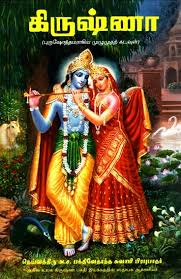
Author Name:
AK. Ramanujam
A.K Rananujan was called "Indo-Anglian harbingers of literary modernism". Several disciplinary areas are enriched with A.K.Ramanujan`s aesthetic and theoretical contributions. His free thinking context and his individuality which he attributes to Euro-American culture gives rise to the "universal testaments of law". A classical kind of context-sensitive themes are also found in his cultural essays especially in his writings about Indian folklore and classic poetry. He worked for non-Sanskritic Indian literature and his popular work in sociolinguistics and literature unfolds his creativity in the most striking way. English Poetry most popularly knows him for his advance guard approach. Attipat Krishnaswami Ramanujan was born in 1929 in Mysore, India. He was born to a Tamil family. He came to the U.S in 1959 where he remained until his death in July 13, 1993. He received his BA in English Literature and MA in literature from University of Mysore. Then he teaches at several universities in South India. After receiving a graduate diploma in Theoretical linguistics from Deccan University in Poona in 1958 he went to Indiana University where he got Ph.D. in linguistics in 1963. In 1962, he became professor at the University of Chicago. He played an instrumental role in shaping the South Asian Studies program. He has worked in the departments of South Asian Languages and Civilizations, Linguistics and with the Committee on Social Thought. In 1976 he was awarded with `Padma Sri` and in 1983 he won the MacArthur Prize Fellowship. In his cultural essay "Is There an Indian Way of Thinking?" he established the notion "context-sensitive" as opposed to "context-free". These are the terms from linguistics. To him `context-sensitive` is an appropriate term of other`s view and reaction towards inconsistency, hypocrisy, tolerance and mimicry of Indian tendency. In the context he cites the example of Said`s Orientalism. `Context-free thinking` while gives rise to universal testaments of law such as in the Judeo-Christian tradition, `context-sensitive` thinking on the other hand gives rise to more complicated sets of standards such as the laws of `Manu`. For which accurateness has to depend on various factors particularly in factors of identity like birth, karma, dharma, occupation etc. It is a kind of rationale. He explains cultural ideologies and behavioral manifestations in terms of an Indian psychology. "The Interior Landscape: Love Poems from a Classical Tamil Anthropology in 1967 and "Folktales from India, Oral Tales from Twenty Indian Languages are his noted work in Indian folklore studies. His theme `context-sensitive` also appears in his work on Indian Folklore and poetry. He explained the `intertextual` nature of Indian Literature in "Three Hundred Ramayanas" in 1991 and in "Where Mirrors Are Windows: Toward an Anthropology of Refections" in 1989. By the word `intertextual` he meant that Indian stories refer to one another and to other versions too. To him the oral and written traditions mutually influence each other.
 KRISHNA THE SUPREME PERSONALITY OF GODHEAD - கிருஷ்ணர் (புருஷோத்தமராக
KRISHNA THE SUPREME PERSONALITY OF GODHEAD - கிருஷ்ணர் (புருஷோத்தமராக
